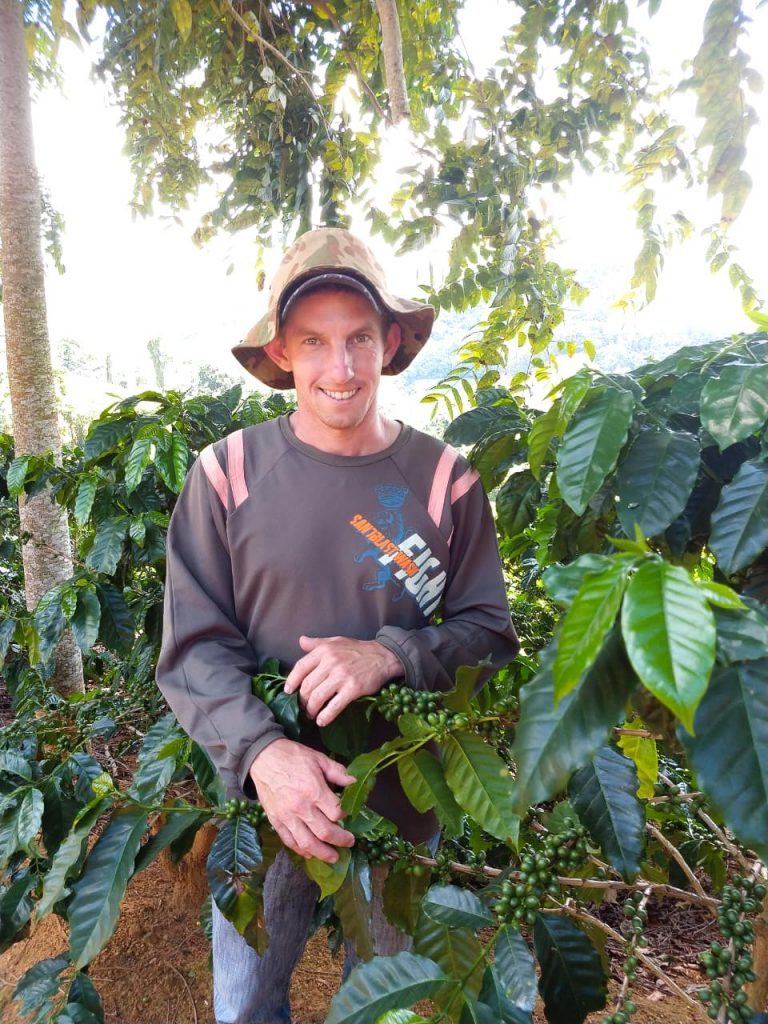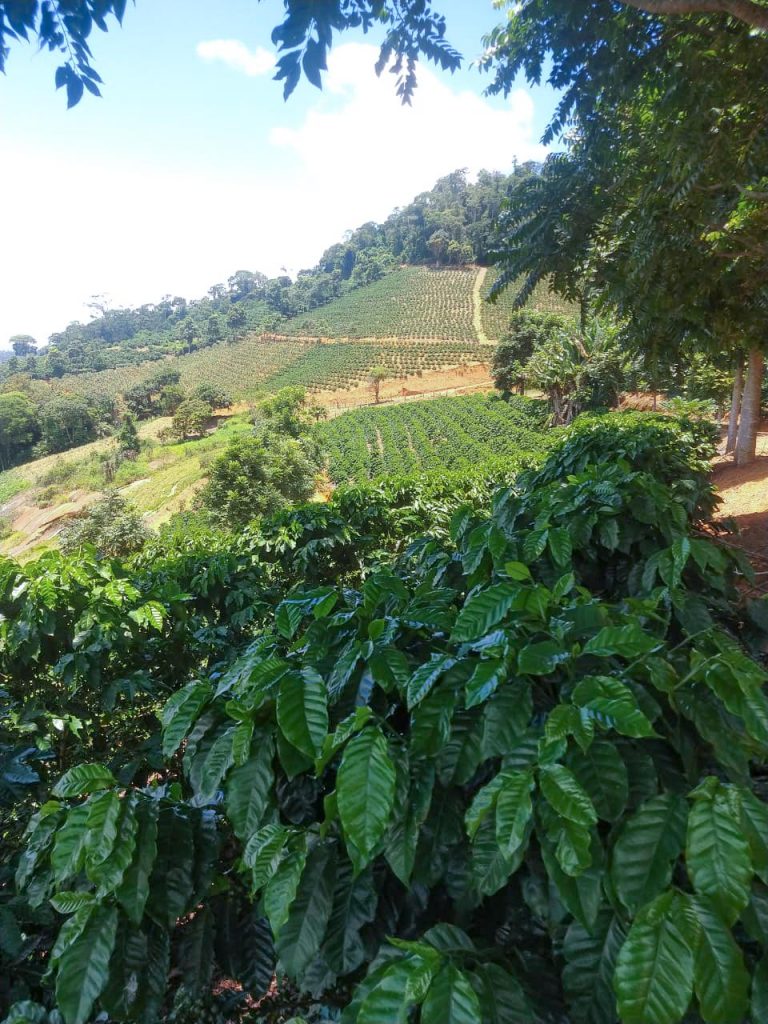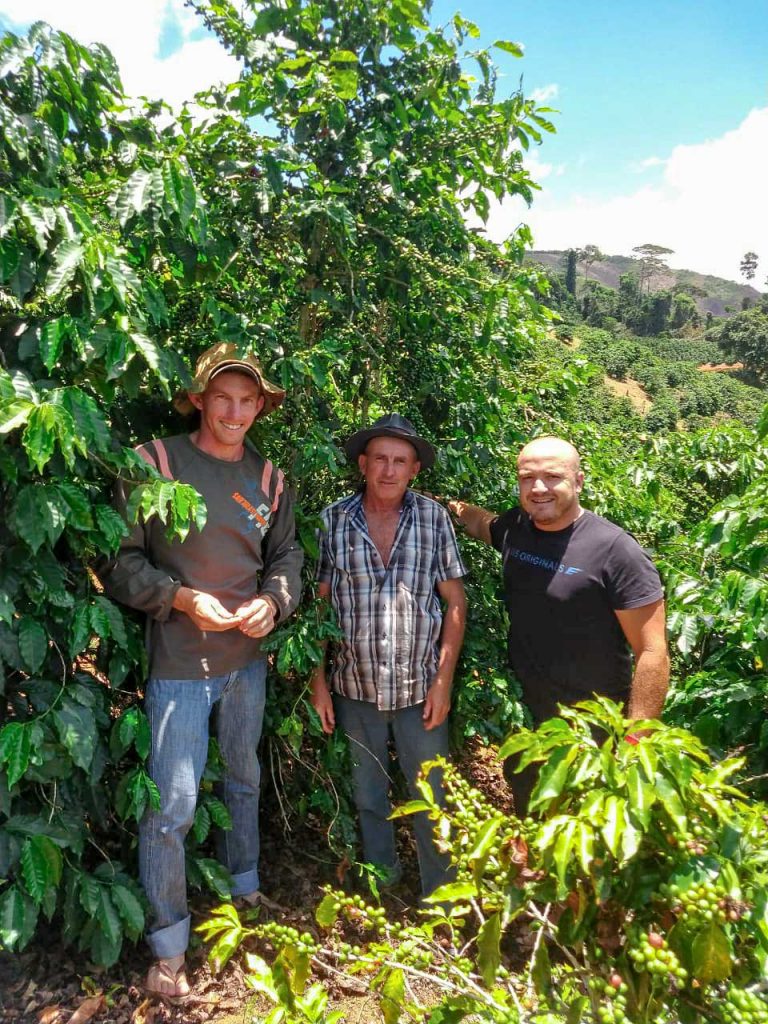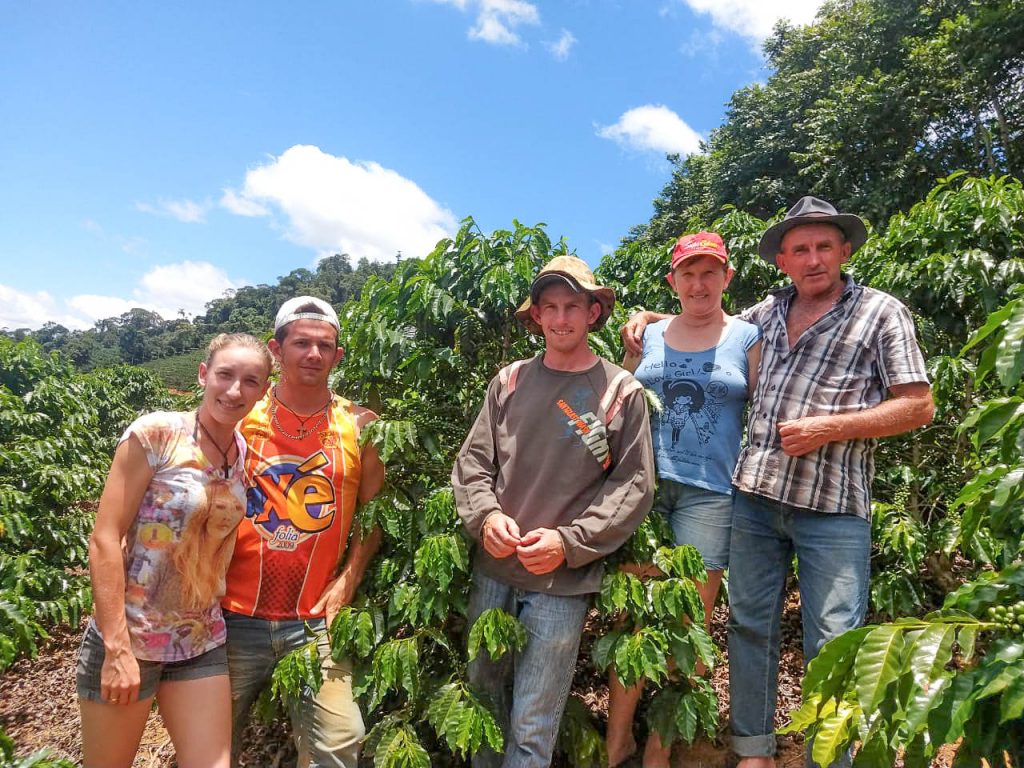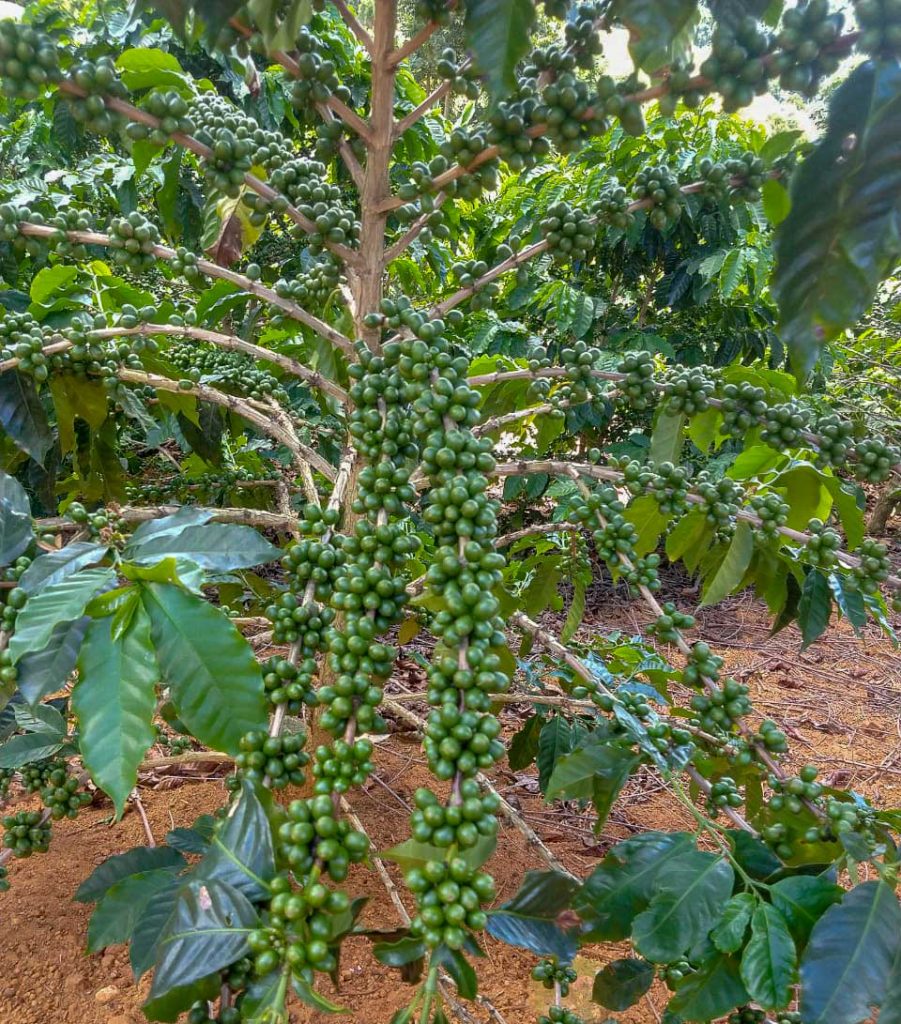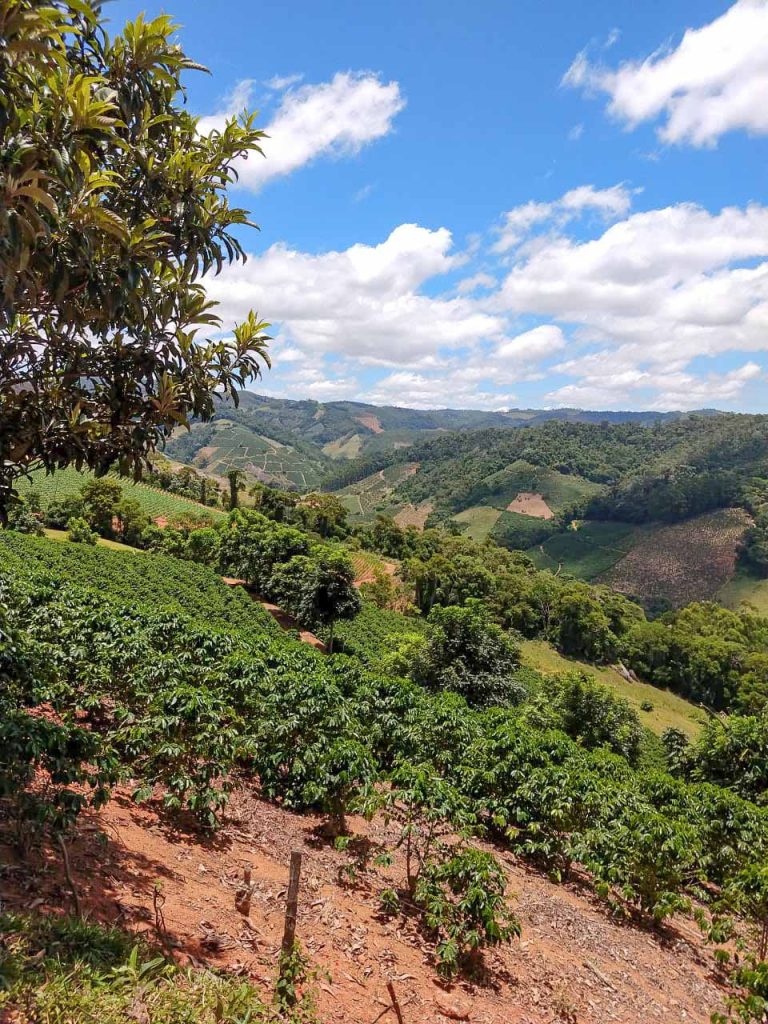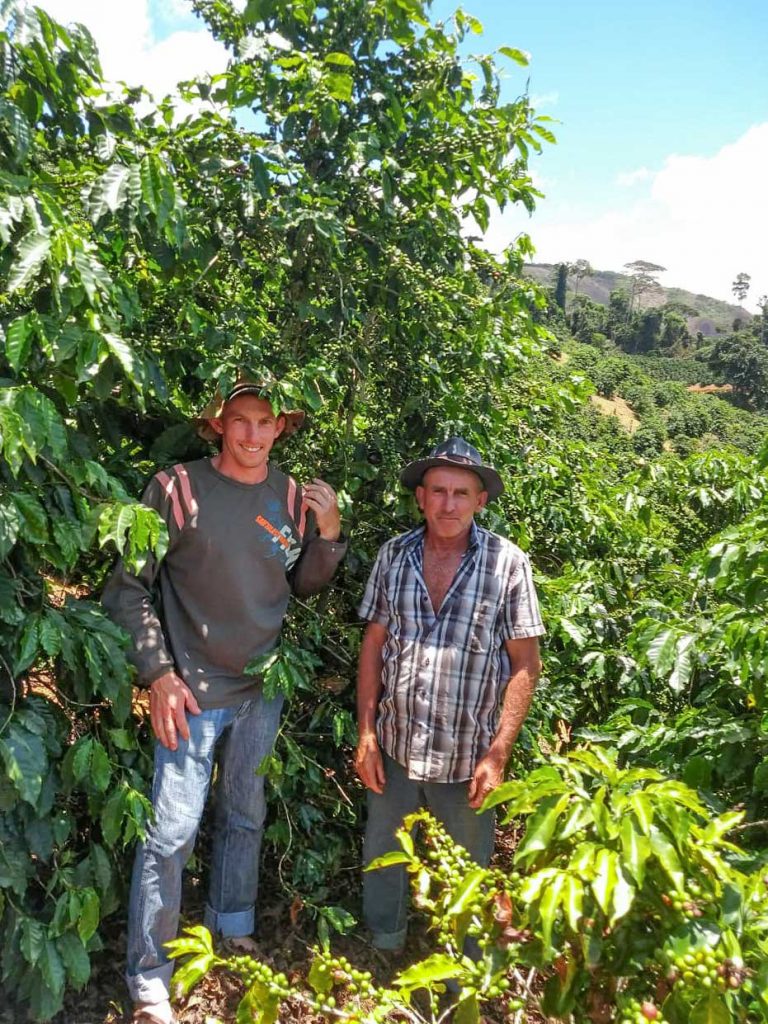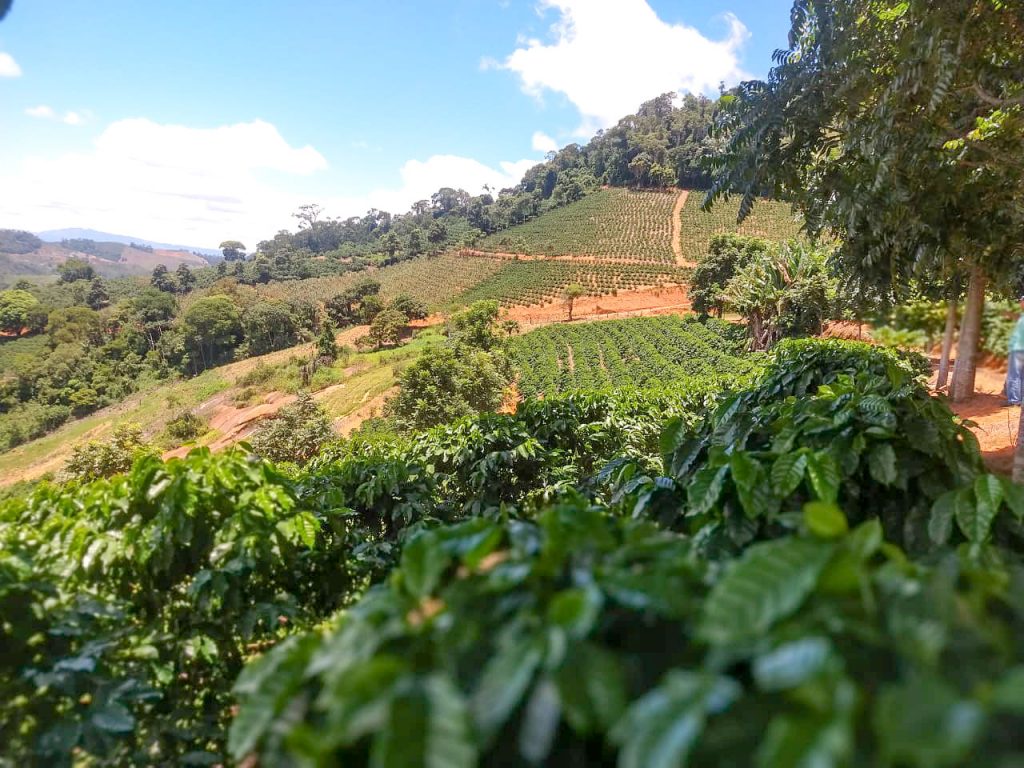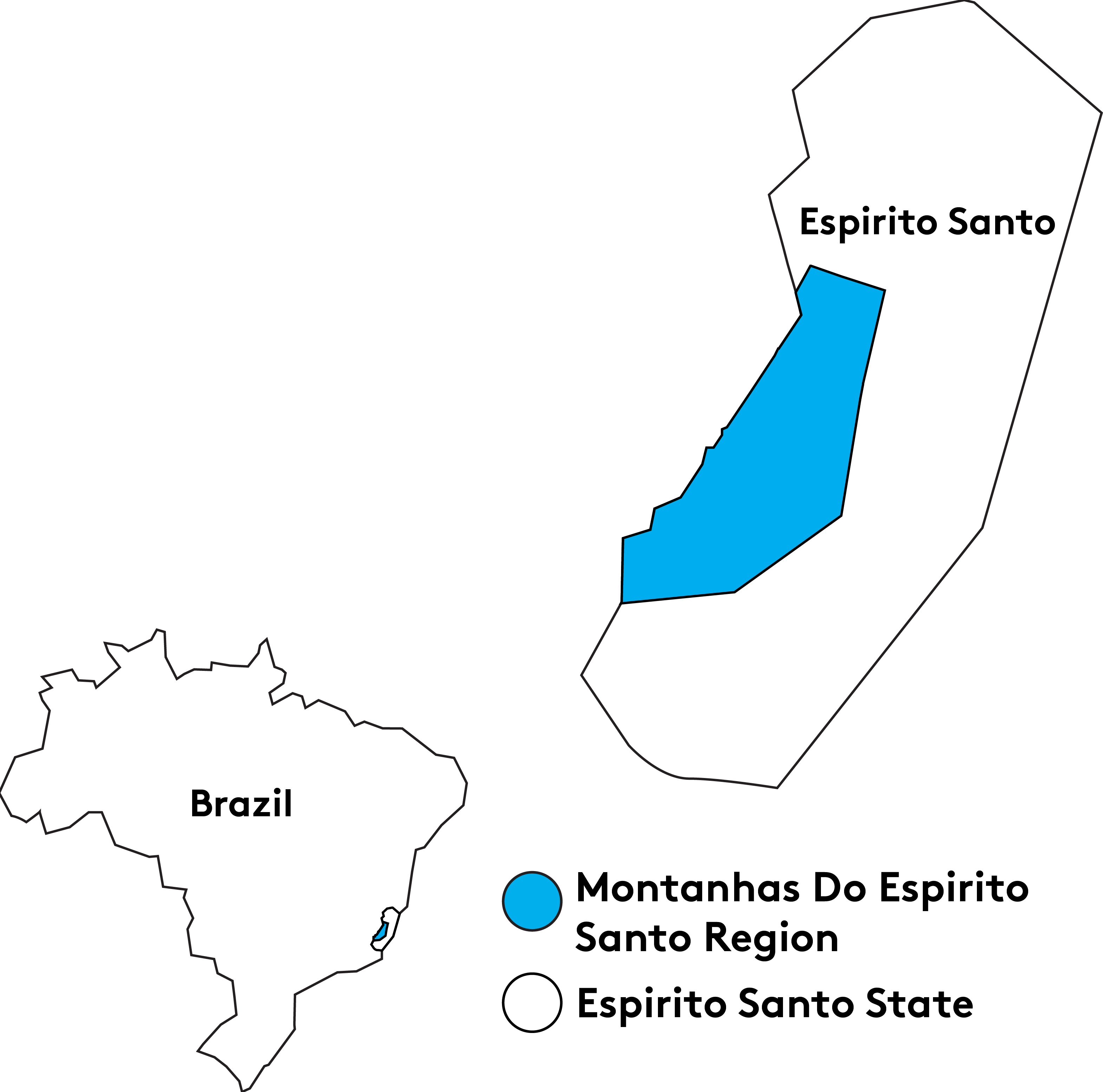Nicolau Herzog is descended from Pomeranian immigrants to Brazil and is part of the fourth generation of coffee producers in his family. His great-grandfather, Ricardo Herzog, came from Germany and was who broke ground on the property, where, til this day, coffee agriculture is the main activity.
Around 1970, the farm was renovated according to the latest growing techniques and with resistant, high-yielding varieties. Luciano Herzog, Nicolau’s father, continued the labors on the farm and taught Nicolau the skills for producing quality coffee. 17 of the farm’s 29 hectares are planted with coffee on the farm in the city of Itarana, Alto Jetibocas community.
Today, father and son work together and face the difficulties of artisanal labor to carry out the process of selective harvesting and coffee depulping. Nicolau is motivated to continue passing the family’s hard work from one generation to the next and keeping alive the family tradition of coffee production.
